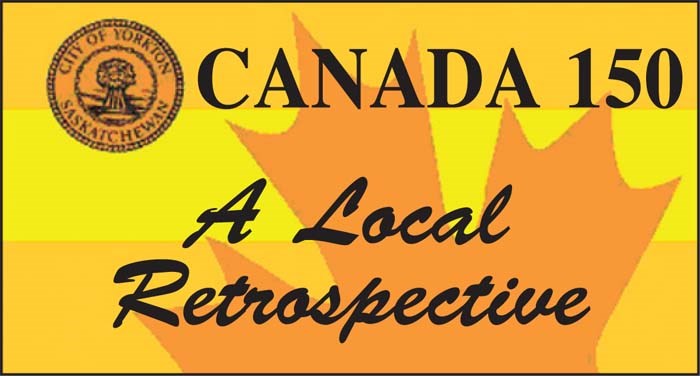As we approach the end of Canada’s 150th year, we also approach the end of the Canada 150 column, our dive into history through our own archives. While the tradition has been to look back on a specific event in history, since this is the final Canada 150 column for this, the final edition printed in the country’s 150th year, let’s take a different approach, and see what was happening 50 and 100 years ago.
In 1967, the Enterprise was reflecting on Canada’s centennial, and all of the events which took place in Yorkton over the year.
The city’s sports teams celebrated the centennial with victories. The Yorkton Cardinals captured the Southern Saskatchewan Baseball League championship in their inaugural year, while the Terriers closed out 1967 without a loss.
The year was marked by tragedy as well. “Prominent senior citizen” D. R. Ball was lost in a blizzard, suffering extreme exposure. The effort to find him was “said to be the largest ever conducted in the city.” He later died of his injuries.
A light plane carrying Keith Stevens, Walter Perepeluk and Mike Ruzyski, returning from a fishing trip to Little Bear Lake, disappeared without a trace in July, and was still missing after six months of searching.
It wasn’t just reflecting on the previous year, as two Yorkton educators received Centennial medals. Russell Baldwin, long time principal of Yorkton Collegiate Institute, and John Fisher, former principal of Victoria Public School, both received the award.
In 1917, the focus was on the future, and that future had no alcohol in it. Canada was soon to be dry, as the importation of liquor was set to cease. The argument for prohibition, in this case, was the war effort, as the country needed barley rye and wheat to feed the soldiers and other more useful purposes than merrymaking. An editorial in the December 27, 1917 edition of the Yorkton Enterprise called it a “necessary, if drastic step towards winning the war.”
Robt. Border’s barn in Ebenezer was caught in a mysterious fire, causing $3,000 in damage. Five horses, six cattle, eight pigs, a number of poultry, 400 bushels of oats and a quantity of hay were lost in the blaze, along with the barn itself. The loss of pigs was especially important, as elsewhere in the paper the increased production of pork was demanded of area farmers. The pig was deemed necessary for allied nations in Europe.
That’s how we ended the year 50 and 100 years ago. One wonders what will be the issues of the day in the distant year of 2067.



